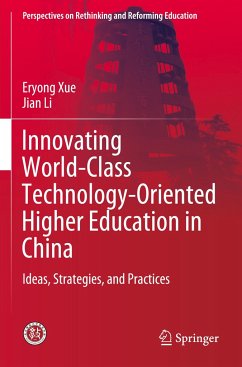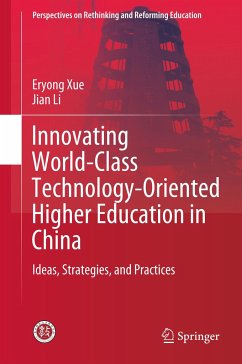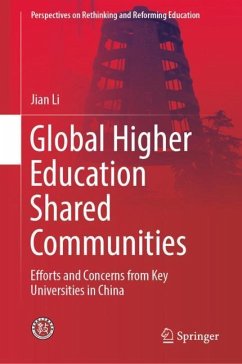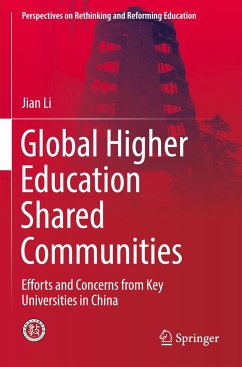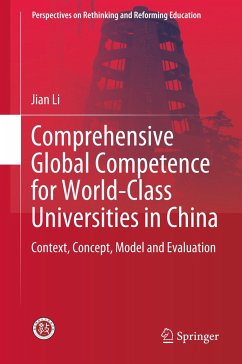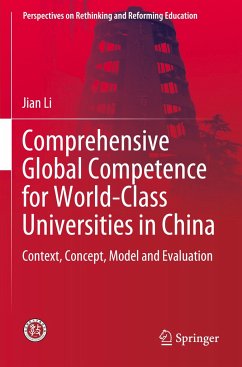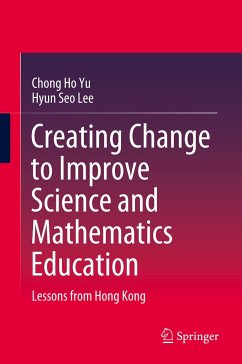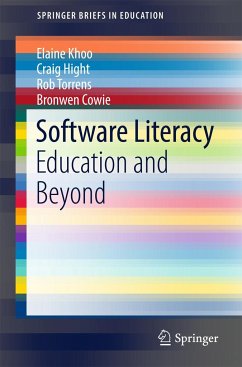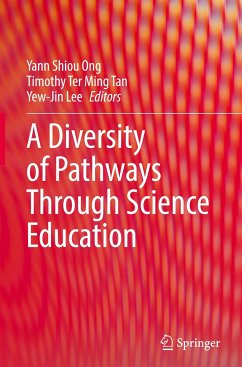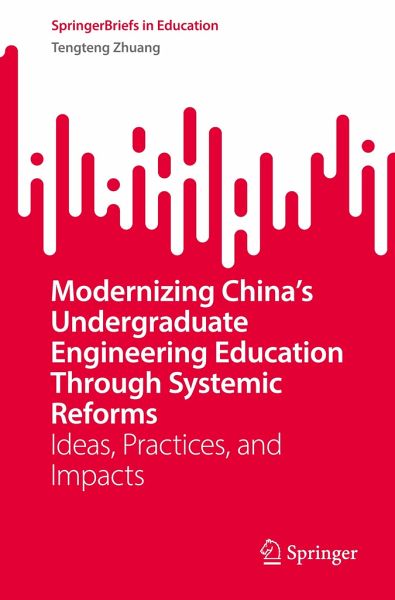
Modernizing China's Undergraduate Engineering Education Through Systemic Reforms
Ideas, Practices, and Impacts
Versandkostenfrei!
Versandfertig in 6-10 Tagen
34,99 €
inkl. MwSt.

PAYBACK Punkte
17 °P sammeln!
This book examines the comprehensive engineering education reform since China put forward its New Engineering Education policy in early 2017. It presents systematic reform measures at micro-level, such as national policies on massively building up new programs that cater to emerging state-of-the-art technologies in the industry, on developing synergistic approaches to education through tightened university-industry collaboration, and on formulating the four-level quality assurance mechanisms. The book also addresses meso-level institutional schemes and implementations at several case universit...
This book examines the comprehensive engineering education reform since China put forward its New Engineering Education policy in early 2017. It presents systematic reform measures at micro-level, such as national policies on massively building up new programs that cater to emerging state-of-the-art technologies in the industry, on developing synergistic approaches to education through tightened university-industry collaboration, and on formulating the four-level quality assurance mechanisms. The book also addresses meso-level institutional schemes and implementations at several case universities researched, and micro-level issues directly regarding teaching and student learning based on empirical studies.
Overall, this book provides the international community the knowledge of how international benchmarking of university engineering education is reflected in the Chinese context, and helps readers to gain an understanding the success and failure of different practices in achieving relevant reform goals.
Overall, this book provides the international community the knowledge of how international benchmarking of university engineering education is reflected in the Chinese context, and helps readers to gain an understanding the success and failure of different practices in achieving relevant reform goals.



